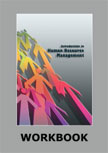Wipro's PCMM - Level 5 Certification
|
|
ICMR HOME | Case Studies Collection
Case Details:
Case Code : HROB010
Case Length : 10 Pages
Period : 1998 - 2001
Organization : Wipro
Pub Date : 2002
Teaching Note : Available
Countries : India
Industry : Information Technology
To download Wipro's PCMM - Level 5 Certification case study
(Case Code: HROB010) click on the button below, and select the case from the list of available cases:

Price:
For delivery in electronic format: Rs. 300;
For delivery through courier (within India): Rs. 300 + Shipping & Handling Charges extra
» Human Resource and Organization Behavior Case Studies
» HRM Short Case Studies
» View Detailed Pricing Info
» How To Order This Case
» Business Case Studies
» Area Specific Case Studies
» Industry Wise Case Studies
» Company Wise Case Studies

Please note:
This case study was compiled from published sources, and is intended to be used as a basis for class discussion. It is not intended to illustrate either effective or ineffective handling of a management situation. Nor is it a primary information source.
Chat with us

Please leave your feedback

|
|




<< Previous
"To us, PCMM Level 5 is not just another trophy, it is the
way we run our business."
- Pratik Kumar, V.P. - Talent Engagement & Development,
Wipro, in December 2001.
Background Note
Wipro, a part of the Indian software services major and Azim
H Premji group of companies was established in 1945 and commenced operations in
1946. In 1947, the company set up an oil mill and hydrogenated cooking medium
plant at Amalner in Maharashtra for manufacturing vegetable ghee, edible oil and
laundry soap. In 1966, Azim Hasham Premji (Premji) took over Wipro and chartered
an expansion plan for the company. This included diversification into
manufacturing toiletries and baby care products.
|
Wipro's turnover increased from Rs 40.82 million in 1965-66 to Rs 104.09 million
in 1970-71. In the late 1970s, the company realized the potential of information
technology and set up its own information technology outfit in Bangalore in
1982, under Ashok Narasimham, with a small team of professional R&D and
marketing managers. Over the years, company set up various subsidiaries involved
in various businesses (Refer Table I for Wipro's subsidiaries). Till the early
1980s, Wipro was well known for its computer hardware products.
|

After 1984, Wipro shifted its focus to software business
and started offering offshore software solutions for global companies. The
company's expertise and cost advantages over other companies made it very
popular globally. After Wipro Infotech and Wipro Systems were merged in
1994, Wipro became the largest software exporter from India after TCS and
Infosys Technologies.
|
|
Over the years, Wipro entered into various alliances with global IT
majors (Refer Table II for Wipro's alliances).
By the end of the financial year 2000-01, Wipro had emerged as a Rs
31 billion company, offering a complete suite of IT infrastructure
solutions, professional services, communication services and
business solutions. It provided services in various sectors like
telecom, healthcare, retail and systems software. Wipro's IT
division had around 18,000 customers, 7,000 high-end systems across
190 locations and it also had a network of 180 business partners.
The company had 14,000 employees, of which around 11,500 were
employed in its IT division... |
Excerpts >>
|
|










